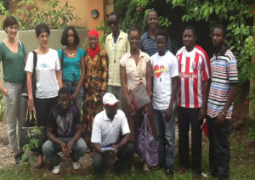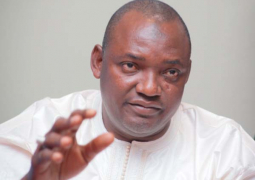The Association of Non-governmental Organizations in The Gambia (TANGO) on 17 July 2012 held a daylong forum on decentralization and local government Act at its conference room in Kanifing.
Participants at the forum, which attracted stakeholders from the private and public sector, were engaged on serious talks on their various responsibilities as sectors to support the development of the country.
Speaking at the forum, Madi Jobarteh, programme manager of TANGO, stated that the constitution of The Gambia sets the policy objectives for decentralization and local government reforms under section 192 in which sub-section (1) states that local government administration in The Gambia shall be based on a system of democratically elected councils with a high degree of local autonomy.
He added that it was stipulated that an act of the National Assembly shall provide for the establishment of city councils, municipalities and area councils and each district shall have jurisdiction. Section 192 (4) establishes that issues of local policy and administration shall be decided at a local level and that local government authorities shall cooperate with the central government in adopting a policy of decentralization.
Recalling that prior to the enactment of the Local Government Act in 2002 and amended in 2003, a national governance policy was adopted in 1999. Following the act, the Local Government Finance and Audit Act 2004 was created to provide a legal basis for political and fiscal decentralization in The Gambia.
With funding from the United Nations Democracy Fund, TANGO has entered into a partnership with Concern Universal to implement a two-year project strengthening advocacy capacity for civil society in The Gambia.
This, he said, will strengthen NGOs participation in public policy and development processes, thus discusses issues surrounding local governance with a view to enhancing national development, particularly in the rural areas.
“It is envisaged that such engagement will strengthen better understanding and collaboration between government agencies at the local level.”
For his part, Burang Danjo, programme manager of Concern Universal, said the project is funded by UNDEF and will last for two years.
According to him, the objective of the project is to raise awareness of TANGO and its members and government of the potentials for joint policy engagement, provides skills, knowledge and resources for their engagement on issues of concern to civil society as well as to create a platform for ongoing and meaningful government through civil society dialogue.
To him, some of the activities the project intend to take include advocacy programme through supporting TANGO advocacy unit, perception of people of TANGO, develop advocacy strategy for TANGO to effectively engage government and share ideas and experience within the sub-region through exchange visits.



